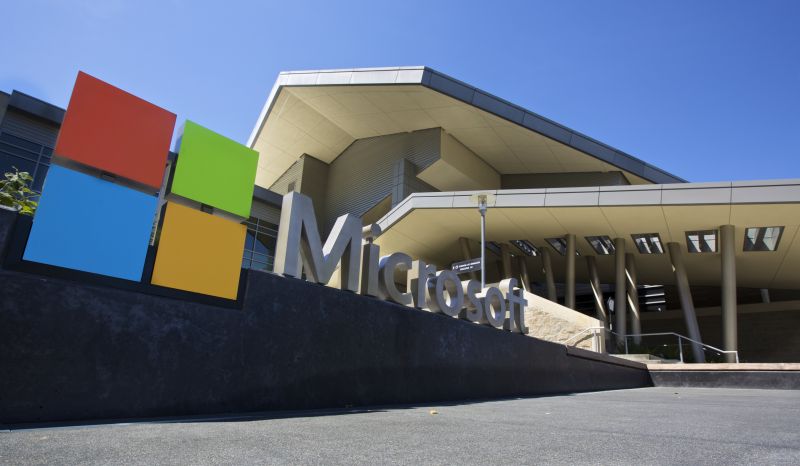
Financial advisers recommend you set aside three to six months of emergency cash, just in case you lose your job, get sick or wreck your car. Depending on where you live—and how big your family is—this could be anywhere from $10,000 to $50,000.
Companies are the same way, only on a larger scale. A surprise drop in the market, a disruptive competitor or a complicated piece of tax legislation can flip a company from black to red almost overnight. Smart CEOs ensure their organizations have capital in reserve—the corporate version of an emergency fund.
At a certain point, however, an “emergency fund” can become so big that it transforms from a simple security to a plain old pile of cash. Think less piggy bank, more Scrooge McDuck.
At FindTheCompany, we turned to Zacks Investment Research to chart the biggest corporate cash hoarders in America. All 25 of these corporations have cash stockpiles greater than the GDP of 33 percent of the world’s countries.
Note that these totals reflect both cash and short-term investments, or any investment that the company can turn back into cash in fewer than 12 months.
Note also that we excluded banks from this list, a common practice for this sort of analysis. Banks tend to have massive amounts of cash on hand, but only because the banking business is all about holding people’s money, a distinction that would make the comparison somewhat apples to oranges.
It’s for this reason that General Electric—which tops the list—must come with a caveat. GE Capital, a subsidiary of GE, is a financial services and banking unit. While GE is making moves to get out of the banking business, GE Capital nonetheless inflates the company’s total reserves.
As a result, Microsoft also has a case for stockpiler-in-chief. The corporation has nearly $100 billion in reserve, despite a somewhat rocky decade. After dipping to a paltry $21 billion in 2009, Microsoft has been pinching pennies ever since, growing its reserves by nearly 500 percent in just six years.
Why hoard so much cash? Why not reinvest every dollar into better products, price cuts for customers or better salaries for top employees?
First, giant corporations like to acquire smaller, up-and-coming businesses, and a massive cash pile ensures corporations will be ready to buy when the opportunity arises. Both Facebook and Google in particular have made quick, smart buys thanks to their sky-high cash reserves, from the $1 billion purchase of Instagram (Facebook) to the $3 billion acquisition of Nest (Google).
Second, large cash hoards allow companies to make investors happy, in the form of dividends. While Google has famously never paid a dividend to investors, Apple increased its dividend—or money paid back to investors—just earlier this year.
Third, companies often save up cash to prepare for times of uncertainty. Perhaps Congress is reviewing legislation—such as Obamacare—that could bring about unexpected costs for large corporations. A pile of cash ensures that companies can continue to operate as normal, regardless of a new law’s implications.
Fourth, companies with a big focus on research and development will often save up a lot of cash, given that most R&D carries an uncertain return on investment, with some research leading to breakthroughs and a lot more of it leading to nothing. Google (now Alphabet) is probably the best example, with its various forays into wearable technology, smart homes and self-driving cars. Pharmaceutical companies like Abbott Laboratories provide another example: corporations that invest billions to develop new, blockbuster drugs.
Apart from acquisitions, dividends, security and R&D, however, one pesky factor dwarfs every other: taxes.
When companies make money overseas, they don’t have to pay taxes on that cash to the U.S. government, unless they bring the money back to America. For this reason, many corporations let heaps of cash sit in foreign accounts. The money may be gathering dust, but at least it remains thousands of miles from Uncle Sam.
According to a 2014 report from Moody’s Investor Service, Apple, Microsoft, Cisco and Oracle—four of the six biggest hoarders—hold approximately 90 percent of their cash reserves overseas. Some members of Congress have proposed legislation to bring the money back to American soil, but most lawmakers have resisted approving such a massive tax holiday.
In the end, however, it’s hard to feel too bad for America’s biggest corporate cash stashers. When you’ve got a rainy day fund of $96 billion, three to six months of crisis isn’t going to be a problem, regardless of what Washington has to say.
This article was syndicated from Business 2 Community: The 25 Largest Corporate Cash Hoarders in America
More Business & Finance articles from Business 2 Community:





